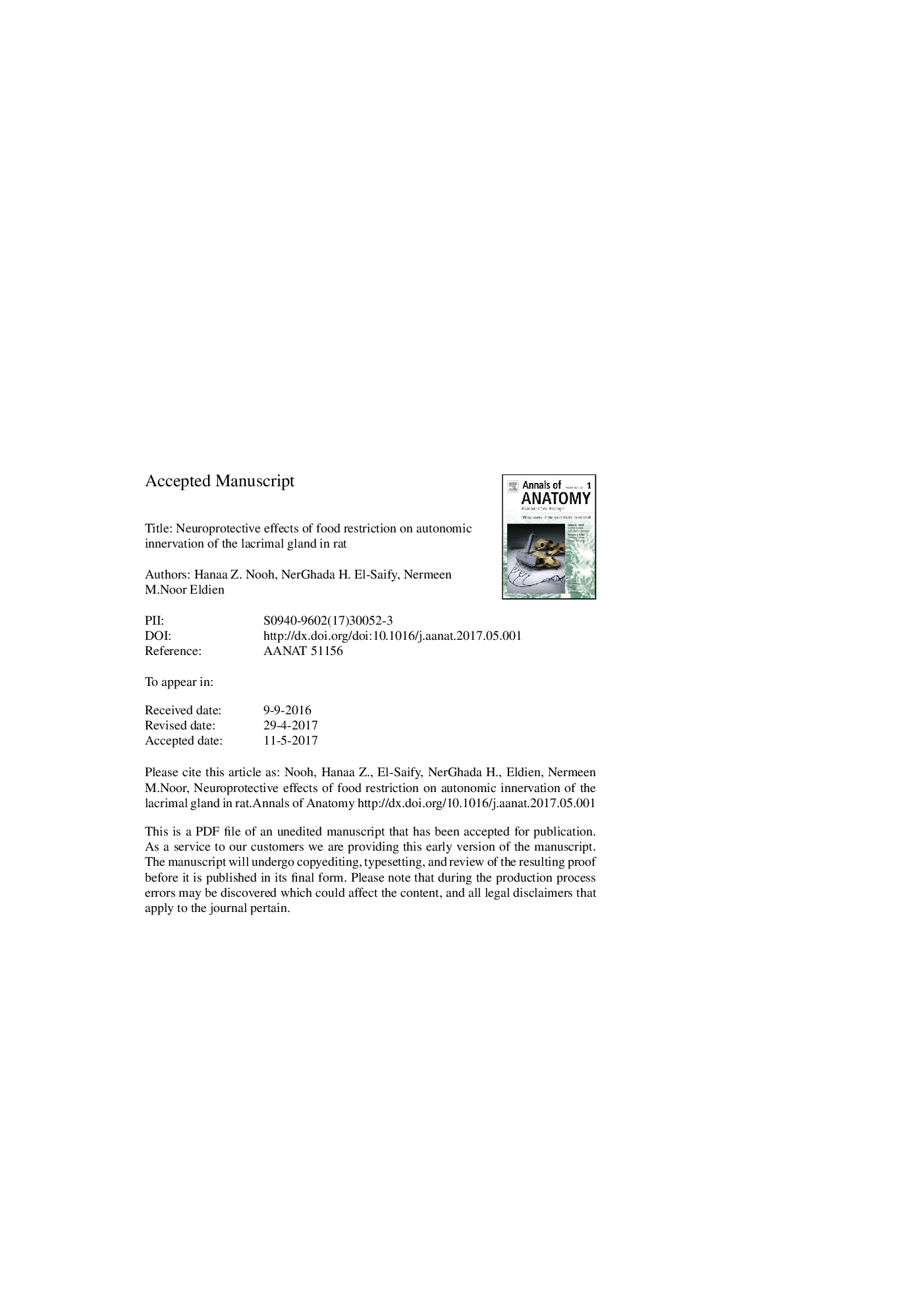| Article ID | Journal | Published Year | Pages | File Type |
|---|---|---|---|---|
| 8460417 | Annals of Anatomy - Anatomischer Anzeiger | 2017 | 25 Pages |
Abstract
Inflammatory mechanisms and oxidative stress play important roles in age-related lacrimal gland (LG) degeneration as well as neural degeneration. Research suggests that caloric restriction can prevent age-related LG dysfunction and increase the life span of neurons. In the present study, we hypothesized that caloric restriction prevents age-related LG dysfunction by ameliorating the influence of inflammatory/oxidative stress on autonomic neurons controlling lacrimal function. We evaluated the effects of food restriction (FR) on inflammatory/oxidative status and on autonomic neural/neuroglial cell populations in LGs from aging rats. A total of 45 female albino rats were divided into young adult, aged, and aged-FR groups. The FR group was subjected to a 50% reduction in food from 14 to 20 months of age. LG samples were collected for each group and subjected to biochemical, histological, and immunohistochemical studies. LGs from aged-FR rats, rather than those from aged rats, showed preservation of their cellular structures, organelles, and Schwan cell units. LG preservation was associated with a marked decrease in inflammatory markers, an increase in cellular antioxidants, and the up-regulation of choline acetyltransverase, tyrosine hydroxylase, neuron-specific enolase and S100. These findings strongly suggest that in aged rats, both oxidative and inflammatory stressors directly contribute to LG dysfunction by mediating the degeneration of autonomic neurons, and that FR can protect against these effects.
Related Topics
Life Sciences
Biochemistry, Genetics and Molecular Biology
Cell Biology
Authors
Hanaa Z. Nooh, Ghada H. El-Saify, Nermeen M. Nour Eldien,
